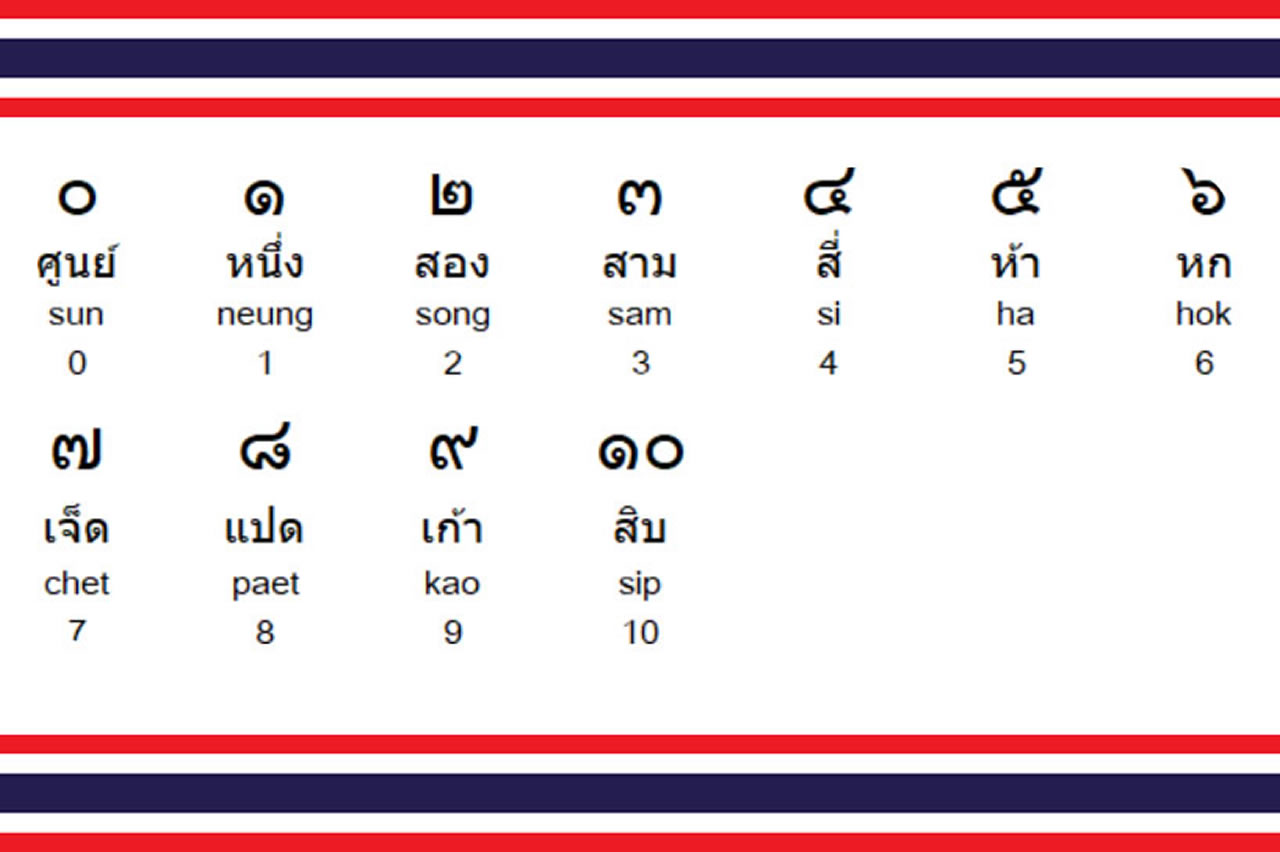Moving to a new country always brings its fair share of challenges, and navigating language barriers is often at the top of the list. For foreigners living in or visiting the Land of Smiles, understanding the intricacies of Thai language and communication is key to Thriving in Thailand.
Overcoming language barriers can greatly enhance your experience, helping you connect with locals, navigate daily life, and integrate more deeply into Thai culture. Here are some aspects of language barriers and practical solutions you should know to make your experience smoother and more enjoyable.
“When I was at the beginning of my journey learning Thai, I often was shy to speak to the locals. The reason being I might have been able to get my question across, but at this stage it was impossible for me to understand the answer.
This lack of knowledge can lead to amusing situations. One time I went to a gas station to get my motorbike cleaned and said to the staff, Maw Teuh Sai Ab Naam, which means that my motorbike wants to take a shower. The gas station attendant found this hilarious.“

“Another time I mixed up Nom (Milk/Breast) with Naam (Water) and ended up ordering large breasts at the local water store which the shop keeper found extremely funny. The Thais take it with humor and are very forgiving.
They appreciate the effort and often reply saying: You speak Thai so good!“
1. Language Proficiency Levels Vary Widely
In major cities like Bangkok and Chiang Mai, you’ll find many locals who speak English, especially in tourist areas or business settings. However, in rural regions, English proficiency is often limited. This gap can make it challenging to communicate effectively outside urban centers, so be prepared to adapt.
2. Thai is a Tonal Language
One of the biggest hurdles for foreigners is mastering Thai tones. The language has five tones – low, mid, high, rising, and falling – and a single word can have completely different meanings depending on the tone. For example, “káo” can mean “they,” “rice,” or “entrance” based on the tone used. Mispronunciations can lead to confusion or unintended humor, so don’t be afraid to laugh at yourself as you learn!
3. Formality Matters
Thai has different levels of formality depending on the context. Polite particles like “kha” (for women) and “krub” (for men) are added to sentences to show respect. Speaking to elders, monks, or superiors requires an extra layer of politeness, so understanding these nuances is crucial to making a good impression.
4. Non-Verbal Communication is Key
When words fail, non-verbal cues step in. Thais often rely on gestures, facial expressions, and the iconic Thai smile to convey meaning. Learning to perform the wai (traditional Thai greeting) appropriately can also help bridge communication gaps.
5. Common Misunderstandings
Literal translations between Thai and English can be tricky. For example, Thais often use indirect speech to maintain politeness, which can seem vague to foreigners. Likewise, foreigners may be seen as too direct, leading to unintended awkwardness. Understanding these cultural differences helps prevent misunderstandings.
Essential Thai Phrases for Everyday Life
Here are some useful phrases that can make daily interactions smoother
Greetings & Politeness
- Sawasdee krub/ka (สวัสดีครับ/ค่ะ) – Hello
- Khop khun krub/ka (ขอบคุณครับ/ค่ะ) – Thank you
- Chai (ใช่) – Yes / Mai chai (ไม่ใช่) – No
- Kor thod krub/ka (ขอโทษครับ/ค่ะ) – Sorry / Excuse me
Getting Around
- Bpai nai? (ไปไหน?) – Where are you going?
- Yoo tee nai? (อยู่ที่ไหน?) – Where is it?
- Tee nee (ที่นี่) – Here / Tee non (ที่โน่น) – Over there
- Sia dai! (เสียดาย!) – Too bad! (Useful when something is unavailable)
Numbers (for bargaining, shopping, and taxis)
- Neung, song, sam, see, ha… (หนึ่ง, สอง, สาม, สี่, ห้า…) – One, two, three, four, five…
- Tao rai? (เท่าไหร่?) – How much?
- Lot noi dai mai? (ลดหน่อยได้ไหม?) – Can you give me a discount?
Ordering Food & Shopping
- Ao nee (เอานี่) – I’ll take this one
- Mai sai prik (ไม่ใส่พริก) – No chili (useful if you don’t like spicy food)
- Nam plao, krap/ka (น้ำเปล่าครับ/ค่ะ) – Plain water, please
- Check bin, krub/ka (เช็คบิลครับ/ค่ะ) – The bill, please
Emergencies & Help
- Chuai duay! (ช่วยด้วย!) – Help!
- Bpai rong paya baan! (ไปรพยาบาล!) – Take me to the hospital!
- Tee nee mee kon pood passa Angkrit mai? (ที่นี่มีคนพูดภาษาอังกฤษไหม?) – Does anyone here speak English?
6. Cultural Sensitivity is Essential
Language barriers are not just about words; they’re about culture too. For instance, discussing sensitive topics like the monarchy or religion can make locals uncomfortable. Always approach conversations with respect and a willingness to learn.
7. Basics Go a Long Way
Even if you can’t master Thai, knowing basic phrases can make a huge difference. Learning how to say “sawatdee” (hello), “khob khun” (thank you), and “mai pen rai” (never mind) will help you connect with locals and show your respect for the culture.
8. Context is Everything
Thais rely heavily on context to interpret meaning. For instance, a simple “yes” or “no” may not suffice without additional context. Be patient and willing to explain or repeat yourself to ensure clarity.
9. Written Thai is Complex
Thai script has 44 consonants, 15 vowels, and various diacritics. For most foreigners, reading and writing Thai can be daunting. However, learning to recognize key signs or symbols, like those for restrooms or food, can be incredibly helpful.
10. Effort is Always Appreciated
Thais deeply appreciate when foreigners make an effort to learn their language, even if it’s just a few words. Taking the time to study basic Thai or using language apps can help you build stronger relationships and feel more connected to the culture.
Practical Tips for Overcoming Language Barriers
Be Patient and Open-Minded: Misunderstandings are part of the journey. Approach them with humor and a willingness to learn!
Take Thai Language Classes
Formal classes provide structured learning and a solid foundation in Thai.
- Language Schools: Popular options include AUA Language Center, Duke Language School, and Unity Thai (Bangkok).
- University Courses: Some universities offer Thai language programs for foreigners.
- Private Tutors: Many expats hire private tutors for personalized lessons.
If you are interested in learning Thai and want to stay in Thailand long-term, enrolling in a language school will pave the way for the 1-year ED visa. Read the complete roadmap ===> Thailand Education (ED) Visa
Watch Thai Movies, TV Shows & YouTube Channels
Exposure to spoken Thai helps with listening skills and pronunciation.
- YouTube Channels: Learn Thai with Mod, ThaiPod101, Bangkok Pat
- Thai Dramas & Movies: Watching with English subtitles helps bridge understanding.
Practice with Locals in Everyday Situations
Instead of defaulting to English, try speaking Thai in daily life:
- Order food in Thai at local restaurants.
- Greet neighbors in Thai.
- Try bargaining at markets using Thai numbers.
Looking for a funny way to impress your Thai friends? Check out: Popular Thai Idioms & Proverbs: The Playful Farang’s Guide to Thai Wisdom including a free download of my printable PDF “24 Popular Thai Idioms & Proverbs” with transliterations, translations, and meanings.
Useful Tools for Communication
If you’re not fluent in Thai, don’t worry! Several tools and apps can help bridge the language gap:
- Google Translate – Great for quick translations, especially with the voice and camera features for menus or signs.
- LINE – Thailand’s most popular messaging app, widely used by locals for chatting, making calls, and even business transactions. Many restaurants and shops use LINE for reservations and customer service.
Use Language Learning Apps
Self-paced learning apps are great for building vocabulary and improving pronunciation.
- Duolingo – Good for beginners learning basic Thai.
- Pimsleur – Focuses on conversational Thai through audio lessons.
- Ling & Drops – Interactive apps for vocabulary building.
- ThaiPod101 – Offers video and audio lessons for various proficiency levels.
- Thai-Language.com – Excellent for common phrases and pronunciation.
- Papago & SayHi – Translation app with real-time voice translation
Join Language Exchange Meetups
Practicing with native Thai speakers is one of the best ways to improve.
- Tandem & HelloTalk – Apps that connect you with Thai speakers for exchange.
- Meetup.com & Facebook Groups – Look for Thai-English language exchange meetups in major cities.
I do not read or write Thai, but I speak with good proficiency. It makes a huge difference when you are able to strike up a conversation with the locals in their native language. It not only makes things in daily life a lot easier but also absolutely enriches your experience in this beautiful country!
When living in any foreign country, it is in your own best interest to make an effort to learn the local language, at least to some degree. So, take a deep breath, smile, and give it a try – you might surprise yourself with how far you can go!
How do you feel about learning some Thai for your stay in the Land of Smiles? Or maybe you are an expert and fluent in the Thai language. How did you acquire your language skills? Please comment below.

